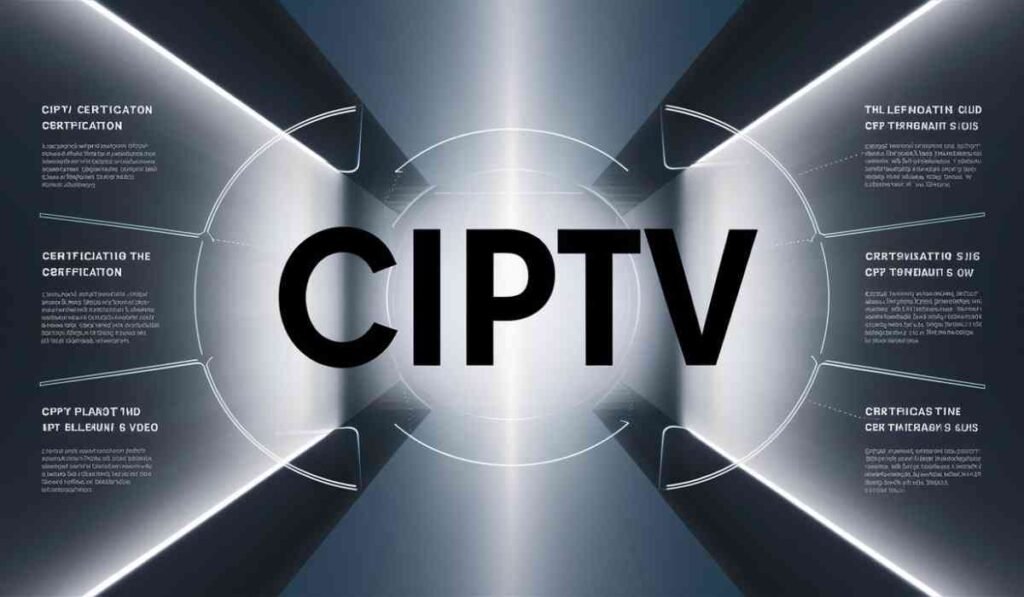The way we consume television and entertainment has evolved dramatically in the last decade, and one of the major disruptors in this evolution is CIPTV (Cloud Internet Protocol Television). As streaming services gain popularity and cable TV subscriptions decline, CIPTV is revolutionizing how content is delivered and experienced by viewers. In this article, we will explore how CIPTV works, its features, benefits, challenges, and the potential future of this transformative technology.
What is CIPTV?
CIPTV, or Cloud Internet Protocol Television, refers to a system where television content is streamed over the internet through a cloud-based service rather than through traditional satellite or cable broadcasts. This technology allows users to access TV channels, on-demand video content, and even interactive services using internet-enabled devices like smart TVs, mobile phones, and laptops.
Unlike traditional IPTV, which relies on a dedicated infrastructure and a fixed connection between the user and the content provider, CIPTV uses cloud servers to deliver content. This means that the content is stored in data centers and delivered over the internet, reducing the dependency on traditional broadcasting methods. The cloud-based nature of CIPTV allows for scalability, flexibility, and improved efficiency in delivering high-quality content.
In simple terms, CIPTV is a next-gen streaming service that combines the best features of internet-based services and cloud computing to offer a more personalized, flexible, and accessible viewing experience. With this technology, users can access content anytime, anywhere, without the need for satellite dishes, antennas, or cable subscriptions.
How CIPTV Works: Technology Behind the Magic

At its core, CIPTV is built on cloud computing technology and relies heavily on the internet to deliver content. When you watch a show or stream a movie through CIPTV, the content is not broadcast over traditional airwaves or through physical cables. Instead, it is delivered from a cloud server to your device via the internet. Here’s how this system works in more detail:
Cloud Infrastructure and Content Delivery
The process begins with content providers uploading their TV shows, movies, and other video content to a central cloud server. These servers are typically located in data centers with high-speed internet connections. From here, the content is distributed across various servers globally, ensuring users can access it with minimal latency.
When you select a channel or video to watch, your device sends a request to the server, which then streams the requested content to your screen. This stream is delivered in a digital format, ensuring that the video quality is consistent and high-definition. The key to CIPTV’s success is its scalable infrastructure, which ensures that even as demand increases, content can be delivered smoothly to millions of viewers simultaneously.
Multi-Device Compatibility
Another key feature of CIPTV is multi-device compatibility. Users can access their CIPTV service on a wide range of devices, including smart TVs, computers, smartphones, and even gaming consoles. Whether you are at home, at work, or traveling, as long as you have an internet connection, you can access your favorite shows or sports events. This level of flexibility sets CIPTV apart from traditional TV systems, which are often limited to specific devices or locations.
Key Features and Benefits of CIPTV
CIPTV offers a host of features that improve the viewing experience for users. Here are some of the key benefits:
Enhanced Viewing Experience
One of the most significant advantages of CIPTV is the ability to stream high-definition (HD), 4K, and even 8K content. With the evolution of internet speeds and data compression technology, viewers can now enjoy ultra-high-definition visuals that were once only available in movie theaters. Furthermore, CIPTV services often come with advanced features such as pause, rewind, record, and fast-forward on live TV, allowing users to control their viewing experience.
For sports fans, this means they can rewind and re-watch important moments during live events. For regular TV shows, viewers can skip commercials or pause the content to attend to other tasks, and resume viewing from where they left off.
Personalization and Customization
CIPTV provides a highly personalized experience. Thanks to algorithms and user preferences, CIPTV services can recommend content based on what users have watched in the past, making it easy to discover new shows or movies. Additionally, many services offer customizable user interfaces, allowing users to organize their content in ways that best suit their preferences.
Parental controls are another vital feature, as they enable parents to restrict access to specific content based on age ratings or specific shows. This helps ensure that children have a safe and age-appropriate viewing experience.
Cost-Effectiveness
CIPTV has made significant strides in offering a cost-effective alternative to traditional cable TV. With no need for expensive cable infrastructure or satellite dishes, CIPTV services are generally more affordable, and most come with flexible subscription models. Some services even offer pay-per-view options, allowing users to pay only for the content they want to watch.
This pricing flexibility, combined with the ease of canceling subscriptions without penalty, has made CIPTV an attractive option for many viewers who are looking to cut the cord and eliminate costly cable bills.
Challenges and Limitations of CIPTV
Despite its many advantages, CIPTV is not without its challenges. Understanding these limitations is important for users considering making the switch.
Internet Connectivity Issues
Since CIPTV relies on an internet connection, users are at the mercy of their internet speed. If your internet connection is slow or unstable, the quality of your viewing experience will be affected. Buffering, low-quality streams, and lag can ruin the enjoyment of a show or movie. To mitigate these issues, many CIPTV providers recommend having a high-speed broadband connection (at least 25 Mbps) for optimal performance.
Regulatory and Legal Concerns
CIPTV services also face challenges regarding regulatory frameworks and content licensing. Different regions have specific rules about which channels and shows can be broadcast, and international content may be blocked due to licensing agreements. Additionally, with the rise of piracy and illegal streaming services, content providers must take steps to ensure that their offerings are protected from unauthorized access.
Device Compatibility and Security Risks
Although CIPTV services are available on many devices, there may be compatibility issues with older devices or specific operating systems. Moreover, the cloud-based nature of CIPTV introduces potential security risks, as sensitive user data and payment details are transmitted over the internet. Ensuring robust encryption and secure servers is crucial to protecting users’ privacy and data.
The Future of CIPTV: Emerging Trends
The future of CIPTV looks incredibly promising, with several emerging trends poised to transform the industry.
AI and Machine Learning Integration
As artificial intelligence (AI) and machine learning (ML) technologies advance, they will play a key role in enhancing content recommendations. By analyzing user behavior, these technologies can predict what viewers are likely to watch next, offering more relevant suggestions and improving user satisfaction.
5G and Beyond
With the advent of 5G networks, CIPTV will see even faster streaming speeds, enabling seamless 4K and 8K video experiences without buffering. This will further improve the quality of service, especially in remote or underserved areas where internet speed has traditionally been a challenge.
Smart Home Integration
As more households adopt smart home technologies, CIPTV will integrate with devices like smart speakers, voice assistants, and other IoT (Internet of Things) devices. This will allow users to control their television experience with their voice, offering a more hands-free and intuitive interaction with content.
Conclusion
CIPTV is undoubtedly transforming the way we watch television. With its cloud-based infrastructure, high-definition streaming, and personalized features, it offers a flexible, cost-effective, and engaging viewing experience. While there are challenges to overcome, especially in terms of internet connectivity and content licensing, the future of CIPTV is bright. As technology continues to evolve, we can expect even more innovations that will further enhance the way we consume media.
Frequently Asked Questions (FAQs)
- What is the difference between CIPTV and traditional IPTV?
- CIPTV uses cloud-based servers to deliver content over the internet, while traditional IPTV relies on fixed infrastructure and broadcasting methods.
- Do I need a high-speed internet connection to use CIPTV effectively?
- Yes, a high-speed broadband connection (at least 25 Mbps) is recommended for optimal performance.
- Can I watch live television on CIPTV?
- Yes, many CIPTV services offer live television streaming, including sports events, news, and more.
- Is CIPTV available on all devices?
- CIPTV services are compatible with a wide range of devices, including smart TVs, smartphones, tablets, and laptops.
- How does CIPTV handle international content licensing?
- Content licensing varies by region, and some international content may be restricted due to legal and regulatory reasons.
- Is CIPTV more affordable than traditional cable?
- Yes, CIPTV generally offers more flexible and affordable subscription models compared to traditional cable TV.
- What are the security risks of using CIPTV?
- Since CIPTV is cloud-based, there may be risks related to data privacy and hacking, though providers take measures to ensure security.
- Can I access CIPTV content outside my home country?
- Access to international content may be limited due to regional licensing agreements.
- Will CIPTV replace traditional cable TV in the future?
- It is likely that CIPTV will continue to grow and could eventually replace traditional cable TV for many consumers.
- How can I ensure that my CIPTV provider offers high-quality streaming?
- Look for providers with high ratings for reliability, offer HD or 4K streaming
You May Also Read:https://daliyuknews.com/aiyifan/




